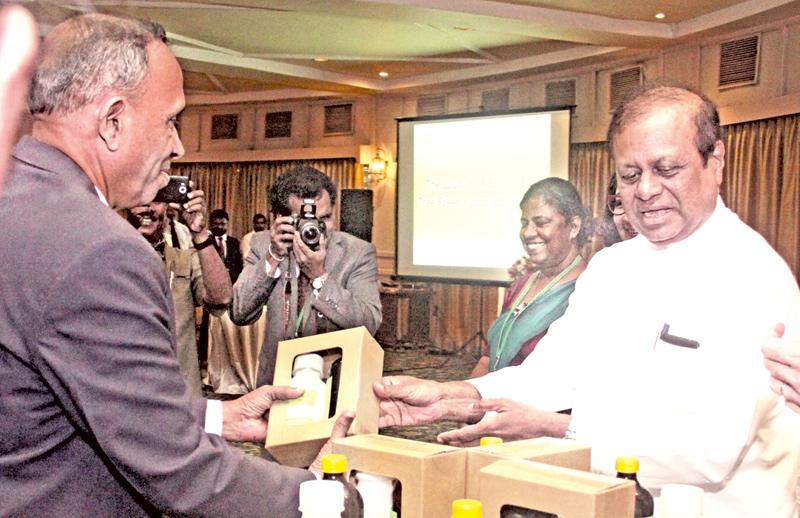
Two new research-developed products to enhance the preservation of fruits was was launched in Colombo last week.
The objective is to reduce post-harvest losses and to increase the output to the market.
One of the products, is an edible bio-wax which lengthened the life time of the fruit by about four weeks, thus resulting in lengthening the fruit season.
Minister of Science, Technology and Research, Susil Premajayantha and High Commissioner of Canada in Sri Lanka, David McKinnon were also present at the launch.
The Canadian International Food Security Research Fund (CIFSRF) – an initiative of Global Affairs Canada and the International Development Research Centre (IDRC) – supported a partnership between the University of Guelph in Canada and Indian and Sri Lankan institutes as well as research and development organisations from three other developing countries to address post-harvest losses of fruits in South Asia.
In Sri Lanka, research was undertaken by the Industrial Technology Institute (ITI) through a grant of CAD 790,112 (approximately Rs. 94 million) over a six-year period (2012-2018) for the project entitled ‘Enhancing Preservation of Fruits Using Nano-Technology’, The Bio-Wax and Tree Fresh Formulation (TFF) developed by the scientists are edible formulations with the added advantage of not only reducing moisture loss, but also reducing loss due to spoilage caused by post-harvest diseases.
The innovative products are eco and environment-friendly and would ensure international food safety standards. The two products developed through this research was launched at the ceremony for commercial production by Hayleys Agriculture Holdings Ltd.
There is a crop loss of 40-60 percent in the post harvest period and the products introduced will help support to reduce these losses. The country will have longer periods of seasonal fruits and this will be beneficial to the consumers, Minister of Science, Technology and Research, Susil Premajayantha said.
“The government supports research of this nature which is a boost to the farmer community,” the Minister said.
The research targeted post-harvest loss reduction of high value Sri Lankan fruits and maintenance of their quality for obtaining premium prices in the domestic and export markets. Poor handling of fruit results in post-harvest losses of nearly 40% in developing countries, including Sri Lanka.
High Commissioner of Canada in Sri Lanka, David McKinnon said, “The government of Canada is happy to extend its support to reduce the post harvest loss in Sri Lanka and hopeful that the researched products will meet the needs of the farmers.”
Research scientists, using cutting-edge nanotechnology, have successfully developed the two products to extend and optimise the use of hexanal for pre- and post-harvest applications to commercial fruits, such as banana, papaya and citrus.
Hexanal, a natural compound that can delay the ripening of fruits, is a highly volatile molecule, but nanotechnology regulates the release of the compound, successfully preserving the fruit.
The research work included an extensive study of the bio-safety of hexanal with data clearly showing that hexanal is harmless to honey bees, natural pest enemies, earthworms as well as being safe for humans.
The project has also extended collaboration to another Canada-funded project, namely, the Agro-Economic Development Project (ADP) implemented by UNDP.
The technology was provided to Nirveli Banana Producers and Processors Association in Jaffna to process waste material from banana fibre extraction in the production of environmental-friendly biodegradable paper products which can be used in place of the polyethylene sleeving currently used during transportation and distribution of fruits.
The innovative products will significantly reduce post-harvest losses, improving incomes and livelihoods of smallholder fruit farmers and also provide new economic opportunities for women farmers engaged in post-harvest operations and contribute towards Sri Lanka’s economic
